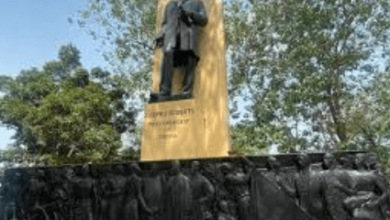Human Rights Day in South Africa is observed annually on March 21st. Explore the historical significance and enduring legacy of Human Rights Day in South Africa, a celebration of equality and justice.
Read also:
Introduction
Human Rights Day in South Africa is a momentous occasion that holds immense historical and cultural significance. This day commemorates a pivotal event in the nation’s struggle for justice, equality, and freedom. In this article, we will delve into the history and importance of Human Rights Day, exploring the key milestones that have shaped South Africa’s path towards a more equitable society.
Apartheid History and Civil Rights
Apartheid History
The story of Human Rights Day in South Africa is intrinsically tied to the dark period of apartheid. Apartheid was a system of racial segregation and discrimination that gripped the country for decades. This inhumane policy enforced racial categorization, land dispossession, and gross inequality.
Civil Rights
Civil rights became the beacon of hope for those who sought justice. South Africans, regardless of their race, demanded equal rights and freedoms. The struggle for civil rights was marked by a relentless fight against systemic oppression and a determination to dismantle apartheid’s pillars.
Democracy
The call for democracy echoed loudly as South Africans yearned for the right to choose their leaders through free and fair elections. The nation rallied behind the principles of democracy as a means to end the tyranny of apartheid.
Equality
Equality, the cornerstone of human rights, was the driving force behind the fight against apartheid. South Africans, irrespective of their racial backgrounds, united to promote the idea that all individuals deserved equal treatment and opportunities.
Protest
Protest was the tool of resistance in the face of oppression. Peaceful demonstrations, marches, and boycotts served as powerful expressions of the South African people’s determination to bring an end to apartheid.
Sharpeville Massacre and Anti-Apartheid Movement
Sharpeville Massacre
The Sharpeville Massacre of 1960 is a somber reminder of the sacrifices made in the name of justice. On this tragic day, peaceful protesters were met with brutal violence by the police, resulting in the deaths of 69 people. The massacre galvanized the nation and the world, sparking international outrage and solidifying the resolve to dismantle apartheid.
Racial Discrimination
Racial discrimination was at the core of apartheid’s injustices. People were segregated based on their race, leading to discrimination in education, employment, and housing. This systemic bias fueled the anti-apartheid movement.
Anti-Apartheid Movement
The anti-apartheid movement was a collective effort to challenge apartheid’s oppression. It involved political leaders, activists, and ordinary citizens who advocated for the rights and dignity of all South Africans.
Non-Violence
While the struggle was fierce, leaders like Nelson Mandela championed non-violence as a guiding principle. They believed that peaceful resistance was a potent weapon against apartheid’s brutality.
Peaceful Resistance
Peaceful resistance tactics included boycotts, strikes, and civil disobedience. These non-violent actions were instrumental in drawing international attention to the plight of South Africans.
Nelson Mandela and Political Activism
Nelson Mandela
Nelson Mandela, an iconic figure in the fight against apartheid, dedicated his life to the pursuit of justice and equality. His unwavering commitment to non-violence and reconciliation made him a symbol of hope and resilience.
Freedom Charter
The Freedom Charter, adopted in 1955, laid out a vision for a democratic and non-racial South Africa. It articulated the aspirations of the anti-apartheid movement and inspired generations of activists.
South African Constitution
The South African Constitution, promulgated in 1996, enshrines the principles of democracy, equality, and human rights. It represents a triumphant moment in South Africa’s history.
Anti-Discrimination Laws
Anti-discrimination laws were put in place to dismantle the apartheid legal framework. These laws aimed to rectify the historical injustices suffered by South Africans.
Political Activism
Political activism played a crucial role in advocating for change. Activists, both within and outside South Africa, used their voices to demand an end to apartheid.
Human Rights Violations and Social Justice
Human Rights Violations
Human rights violations were rampant during apartheid, with many South Africans enduring torture, imprisonment, and discrimination. The world bore witness to these injustices, fueling the global outcry against apartheid.
Sharpeville Day
Sharpeville Day, observed on March 21st, marks the anniversary of the Sharpeville Massacre. It serves as a poignant reminder of the sacrifices made in the pursuit of human rights and justice.
Social Justice
The fight for social justice was central to the struggle against apartheid. South Africans sought to address economic disparities and ensure that all citizens had access to basic services and opportunities.
Human Dignity
The restoration of human dignity was a driving force behind the struggle. Apartheid stripped individuals of their dignity, and the fight for human rights aimed to restore this essential aspect of personhood.
National Holiday
Human Rights Day became a national holiday in South Africa to commemorate the sacrifices made during the struggle. It is a day to reflect on the journey towards a more equitable society.
Sharpeville Memorial and Apartheid Era
Sharpeville Memorial
The Sharpeville Memorial stands as a testament to the lives lost during the massacre. It is a place of remembrance and reflection, where people gather to honor those who made the ultimate sacrifice.
Reconciliation
Reconciliation became a core value in post-apartheid South Africa. The nation embarked on a journey towards healing and unity, seeking to bridge the divides created by decades of apartheid.
Anti-Racism
Anti-racism efforts remain crucial in South Africa. The nation is committed to combating racism in all its forms, ensuring that the mistakes of the past are not repeated.
Historical Significance
The historical significance of Human Rights Day lies in its role as a symbol of South Africa’s resilience and determination. It serves as a reminder of the nation’s capacity for change and progress.
Apartheid Era
The apartheid era was a dark chapter in South Africa’s history. While it is a painful reminder of the past, it also serves as a testament to the power of collective action and the triumph of human rights over oppression.
Conclusion: Human Rights Day in South Africa
Commemorating Human Rights Day in South Africa is a testament to the nation’s unwavering commitment to freedom, equality, and justice. It is a day to remember the sacrifices made and to reiterate the importance of human rights for all. The ongoing fight for human rights in South Africa serves as a beacon of hope, inspiring the world to stand up for justice and equality.
FAQs
What is Human Rights Day in South Africa?
Human Rights Day in South Africa is a commemorative day that marks significant milestones in the country’s struggle for justice, equality, and freedom.
Why is the Sharpeville Massacre important?
The Sharpeville Massacre of 1960 was a turning point in the fight against apartheid, drawing international attention to the injustices faced by South Africans.
Who was Nelson Mandela, and why is he celebrated on Human Rights Day?
Nelson Mandela was a renowned anti-apartheid leader and South Africa’s first black president. He is celebrated for his role in the fight for human rights and equality.
What role did the Freedom Charter play in South Africa’s history?
The Freedom Charter was a key document that outlined the vision for a democratic and non-racial South Africa, inspiring the anti-apartheid movement.
Why is social justice important in South Africa today?
Social justice is crucial in addressing economic disparities and ensuring that all South Africans have access to basic services and opportunities.
How does South Africa commemorate Sharpeville Day?
Sharpeville Day is observed on March 21st with events and remembrances to honor the victims of the Sharpeville Massacre.
What is the significance of the Sharpeville Memorial?
The Sharpeville Memorial serves as a place of remembrance and reflection, honoring the lives lost during the massacre.
What is the importance of reconciliation in post-apartheid South Africa?
Reconciliation is a vital process aimed at healing divisions and building unity in a post-apartheid South Africa.
How does South Africa combat racism today?
South Africa remains committed to anti-racism efforts, striving to eliminate racism in all its forms.
Why is Human Rights Day celebrated as a national holiday?
Human Rights Day is a national holiday to commemorate the sacrifices made during the struggle for human rights and justice in South Africa.
What is the legacy of apartheid in South Africa?
The legacy of apartheid includes historical injustices, but it also symbolizes the nation’s capacity for change and progress.
How did peaceful resistance contribute to ending apartheid?
Peaceful resistance, such as boycotts and civil disobedience, drew international attention to apartheid’s brutality and played a role in its eventual dismantling.
What role did international support play in the fight against apartheid?
International support and pressure on the apartheid regime helped isolate South Africa and contributed to the eventual end of apartheid.
How did anti-discrimination laws change South Africa’s legal landscape?
Anti-discrimination laws were instrumental in dismantling apartheid’s legal framework and rectifying historical injustices.
What lessons can the world learn from South Africa’s struggle for human rights?
South Africa’s struggle for human rights teaches the world the importance of resilience, unity, and the unwavering pursuit of justice and equality.



